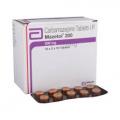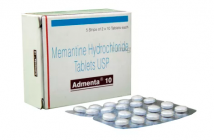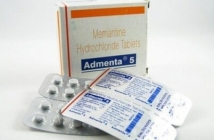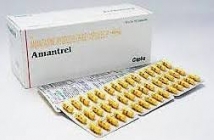Home / Categories / SEIZEP-200MG

SEIZEP-200MG
(10)
CARBAMAZEPINE-200MG
ANTI-CONVULSANTS
NEPAL PHARMACEUTICAL LAB-LAPEN DIVISON
Product Details
Carbamazepine
A to Z Drug Facts
Carbamazepine
Action
Indications
Contraindications
Route/Dosage
Interactions
Lab Test Interferences
Adverse Reactions
PrecautionsPatient Care Considerations
Administration/Storage
Assessment/Interventions
Patient/Family Education
(KAR-bam-AZE-uh-peen)Atreol, Carbatrol, Epitol, Tegretol, Tegretol XR,  APO-Carbamazepine, Novocarbamaz, Tegretol CRClass: Anticonvulsant
APO-Carbamazepine, Novocarbamaz, Tegretol CRClass: Anticonvulsant
 Action Mechanism appears to act by reducing polysynaptic responses and blocks post-tetanic potentiation.
Action Mechanism appears to act by reducing polysynaptic responses and blocks post-tetanic potentiation.
 Indications Treatment of epilepsy (partial seizures with complex symptoms, generalized tonic-clonic seizures [grand mal], mixed seizure patterns or other partial or generalized seizures), in patients refractory to or intolerant of other agents. Treatment of pain of trigeminal neuralgia. Unlabeled use(s): Management of neurogenic diabetes insipidus; treatment of certain psychiatric disorders; management of alcohol, cocaine and benzodiazepine withdrawal; relief of restless legs syndrome. Nonhereditary chorea in children.
Indications Treatment of epilepsy (partial seizures with complex symptoms, generalized tonic-clonic seizures [grand mal], mixed seizure patterns or other partial or generalized seizures), in patients refractory to or intolerant of other agents. Treatment of pain of trigeminal neuralgia. Unlabeled use(s): Management of neurogenic diabetes insipidus; treatment of certain psychiatric disorders; management of alcohol, cocaine and benzodiazepine withdrawal; relief of restless legs syndrome. Nonhereditary chorea in children.
 Contraindications Hypersensitivity to tricyclic antidepressants; history of bone marrow depression; active liver disease. Discontinue MAO inhibitors at least 14 days before administration of carbamazepine.
Contraindications Hypersensitivity to tricyclic antidepressants; history of bone marrow depression; active liver disease. Discontinue MAO inhibitors at least 14 days before administration of carbamazepine.
 Route/Dosage
Route/Dosage
Epilepsy
ADULTS: Initial dose: PO 200 mg bid (tablets) or 100 mg qid (suspension). Increase weekly by up to 200 mg/day in 3–4 divided doses to reach minimum effective dose (maximum 1200 mg/day). CHILDREN > 15 yr: PO 200 mg bid (tablets) or 100 mg qid (suspension). Increase weekly by up to 200 mg/day in 3–4 divided doses to reach minimum effective dose (maximum 1200 mg/day). CHILDREN 12–15 YR: Initial dose: PO 200 mg bid (tablets) or 100 mg qid (suspension). Increase weekly by up to 200 mg/day in 3–4 divided doses to reach minimum effective dose (maximum 1000 mg/day). ADULTS & CHILDREN > 12 YR: Maintenance: 800–1200 mg/day. CHILDREN 6–12 YR: Initial dose: PO 100 mg bid (tablets) or 50 mg qid (suspension). Increase weekly by 100 mg/day in 3–4 divided doses to reach minimum effective dose (maximum 1000 mg/day). (Alternative regimen: 20–30 mg/kg/day in divided doses tid or qid). Maintenance: 400–800 mg/day in 3–4 divided doses. Extended Release: ADULTS & CHILDREN > 12 YR: Initial dose: PO 200 mg twice daily.
Trigeminal Neuralgia
ADULTS: initial dose: PO 100 mg bid (tablets) or 50 mg qid (suspension). may increase by up to 200 mg/day in 3–4 divided doses (tablets: 100 mg increments q 12 hr; suspension: 50 mg qid) prn (maximum 1200 mg/day). maintenance: 200–1200 mg/day. use minimum effective dose or discontinue drug once every 3 mo. extended release: ADULTS: Initial dose: PO 100 mg twice daily.
 Interactions
Interactions
Anticoagulants: May decrease anticoagulant effects. Barbiturates: May result in decreased carbamazepine serum concentrations, possibly leading to decreased effectiveness. Charcoal, activated: May reduce absorption of carbamazepine. Cimetidine: May result in carbamazepine toxicity. Contraceptives, oral: Causes breakthrough bleeding and reduces effectiveness of contraceptives. Diltiazem, verapamil, danazol, propoxyphene, macrolide antibiotics (except azithromycin): May increase carbamazepine levels and may result in toxicity. Doxycycline hyclate: May decrease doxycycline hyclate levels. Felbamate: May decrease concentrations of felbamate or carbamazepine. Felodipine: May decrease effects of felodipine. Haloperidol: May decrease effects of haloperidol. Hydantoins (eg, phenytoin): May decrease carbamazepine levels; may alter hydantoin levels. Isoniazid: May result in toxicity of isoniazid, carbamazepine or both. Lithium: May cause adverse CNS effects regardless of drug levels. Macrolide antibiotics (eg, clarithromycin, erythromycin, troleandomycin): May increase toxicity. Nondepolarizing muscle relaxants: May make these agents less effective. Primidone: Decreased carbamazepine levels. Primidone's active metabolite (phenobarbital) may be increased. Propoxyphene: Increases carbamazepine levels. SSRIs (fluoxetine, fluvoxamine): Increased carbamazepine levels with possible toxicity. Theophylline: May reduce effects of theophylline and carbamazepine. Theophylline levels may be increased or decreased. Tricyclic antidepressants: May increase carbamazepine levels; may decrease tricyclic antidepressant levels. Valproic acid: May decrease valproic acid levels; may alter carbamazepine levels. Verapamil: Concomitant therapy has resulted in symptoms of toxicity.
 Lab Test Interferences None well documented.
Lab Test Interferences None well documented.
 Adverse Reactions
Adverse Reactions
CV: AV block; CHF; hypertension; hypotension; syncope; edema; thrombophlebitis; aggravation of coronary artery disease; arrhythmias. CNS: Dizziness; drowsiness; unsteadiness; confusion; headache; hyperacusis; fatigue; speech disturbances; abnormal involuntary movements; peripheral neuritis and paresthesias; depression with agitation; talkativeness; behavior changes (children); paralysis. DERM: Pruritic and erythematous rashes; exfoliative dermatitis; erythema multiforme and nodosum; purpura; aggravation of disseminated lupus erythematosus; toxic epidermal necrolysis; urticaria; photosensitivity; pigment changes; alopecia; diaphoresis; Stevens-Johnson syndrome. EENT: Blurred vision; visual hallucinations; diplopia; nystagmus; punctate cortical lens opacities; conjunctivitis; tinnitus; dryness and irritation of the mouth and throat. GI: Nausea; vomiting; gastric distress; abdominal pain; diarrhea; constipation; anorexia; GU: Urinary frequency or retention; oliguria with hypertension; renal failure; azotemia; impotence; albuminuria; glycosuria; elevated BUN; urinary microscopic deposits. HEMA: Aplastic anemia; leukopenia; agranulocytosis; eosinophilia; leukocytosis; thrombocytopenia; pancytopenia; bone marrow depression. HEPA: Abnormal liver function tests; jaundice; hepatitis. META: Hyponatremia; hypothyroidism. RESP: Pulmonary hypersensitivity (eg, fever, dyspnea, pneumonitis or pneumonia). OTHER: Aching joints and muscles; leg cramps; adenopathy; lymphadenopathy; fever; chills; SIADH.
 Precautions
Precautions
Pregnancy: Category D. Lactation: Excreted in breast milk. Children: Safety and efficacy in children < 6 yr not established. Elderly: May make elderly more prone to CNS side effects; may cause confusion, agitation or activation of latent psychosis. Special-risk patients: Use with caution in patients with prior adverse hematologic reactions to any drug; glaucoma; cardiac, hepatic or renal disease; and mixed seizure disorders, including absence seizures. Aplastic anemia and agranulocytosis: Has been associated with carbamazepine therapy. The risk of developing these reactions is 5 to 8 times greater than in the general population; however, the overall risk of these reactions in the untreated general population is low. Obtain complete pretreatment hematological testing as a baseline. If in the course of treatment, a patient exhibits low are decreased white blood cell or platelet counts, monitor the patient closely.
PATIENT CARE CONSIDERATIONS
 Administration/Storage
Administration/Storage
- Discontinue MAO inhibitors for minimum 2 wk before administering carbamazepine.
- Give with food to reduce GI irritation. Tablets can be crushed and mixed with food.
- Carbamazepine suspension may produce higher peak level than equivalent tablet dose. Adjust dose accordingly when switching from one form of drug to other.
- Shake suspension thoroughly before administration.
- To minimize loss via nasogastric tube due to adherence to polyvinyl chloride tubing, dilute suspension with equal volume of diluent and flush tube after administration.
- Store in cool, dry environment.
 Assessment/Interventions
Assessment/Interventions
- Obtain patient history, including drug history and any known allergies.
- Note hypersensitivity to tricyclic antidepressants.
- Determine if MAO inhibitors have been taken within last 2 wk.
- Perform pretreatment baseline hematologic studies (CBC, platelets, reticulocyte, serum iron), liver function tests, eye examination, urinalysis and BUN, and continue to monitor monthly for first 2 mo and then yearly throughout treatment.
- Monitor drug levels if noncompliance or toxicity is suspected.
- If signs of bone marrow suppression occur (infections, sore throat, bruising, unusual bleeding), notify physician immediately.
- If signs of liver dysfunction occur (jaundice, dark urine, light-colored stools), withhold drug and notify physician immediately.
- If signs of renal dysfunction occur (decreased urine output, elevated BUN, elevated creatinine), notify physician immediately.
OVERDOSAGE: SIGNS & SYMPTOMS Irregular breathing, respiratory depression, tachycardia, hypotension, hypertension, shock, coma, LOC, convulsions, muscle twitching, tremor, ataxia, drowsiness, dizziness, nystagmus, nausea, vomiting, anuria, urinary retention, abnormal EEG
 Patient/Family Education
Patient/Family Education
- Instruct patient to carry/wear identification indicating use of this drug.
- Advise patient that drowsiness, dizziness, and ataxia are common reactions during first few days of therapy.
- Inform patient with epilepsy that abrupt withdrawal from this drug may precipitate seizures.
- Advise patient to use nonhormonal form of contraception.
- If drowsiness, sedation or blurred vision occurs, institute safety precautions.
- Instruct patient to report these symptoms to physician: nosebleeds, mouth ulcers, sore throat, petechiae, unusual bleeding, fever, jaundice, dark urine or light-colored stools.
- Caution patient to avoid exposure to sunlight and to use sunscreen or wear protective clothing to avoid photosensitivity reaction.
Books@Ovid
Copyright © 2003 Facts and Comparisons
David S. Tatro
A to Z Drug Facts
Substitutes





